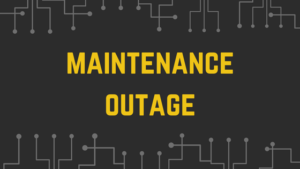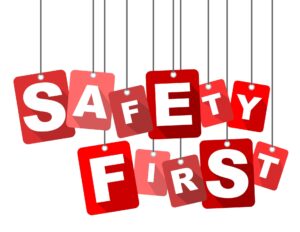


What You Should Know: Before the Outage
Routine plant outages commonly are used throughout industry to allow time for preventative maintenance projects, in-depth housekeeping, changeovers, upgrades and other time-consuming tasks that aren’t part of a facility’s daily operating schedule. Outage events sometimes are scheduled months or even years in advance, and the list of things that need to be accomplished can be quite lengthy.
When facility employees are utilized to check off each item on that list, it sometimes is easy to overlook safety needs during outages because the employees work at the plant every day and are familiar with the hazards that are present during operations. Because the tasks scheduled for the completion during the plant outage are non-routine, they can present different hazards than those faced during normal operations.
Reviewing safety hazards and incorporating safeguards into plans and procedures for each of the tasks that need to be completed will help employees and contractors to better manage each project. As plans are being created, consider the following risks that are common during plant outages. Work tasks also may have unique hazards that need to be evaluated.

Elevated Work Surfaces
Cleaning, housekeeping, painting and other projects may require employees who typically don’t work at heights to work on ladders, scaffolds or other elevated work platforms. These employees need to be aware of fall-from-height hazards. If they do not regularly work at heights, they also may need to receive training prior to performing these jobs.
A qualified person should evaluate all job assignments that will require employees to work on elevated surfaces and determine the best solutions to ensure their safety. These evaluations will help frame training needs. The evaluations also could uncover the need to rent powered personal lift devices or scaffolding to allow a job to be done more safely and efficiently.
Confined Space
Outages are a common time to get into all of those hard-to-reach areas for cleaning and upgrades. If those spaces are big enough for a worker to enter, aren’t intended for continuous occupancy and have limited means of entry and egress, then they meet OSHA’s definition of “confined space.”
When these spaces also have a hazard, such as insufficient oxygen or a vapor that creates an inhalation hazard, a permit is required before a worker or workers may enter. If workers aren’t accustomed to working in confined spaces, conduct training prior to the outage to help ensure their safety and increase their awareness of confined space hazards.
Electrical
A frequently cited OSHA violation is the use of extension cords as a permanent source of energy. Outages are a great time to provide more permanent electrical wiring solutions. This means accessing electrical panels, pulling wires and installing outlets.
Certified electricians know about the hazards of working with electrical power sources as well as how to protect themselves. Others working in the area while these upgrades are happening will need to be aware of power cables and other electrical hazards that cannot be guarded.
Pipelines
Draining pipelines facilitates the replacement of worn sections of piping, couplers, pumps and fittings. However, drained lines still may contain vapors or liquid residuals. In some cases – for example, flammable vapors – the hazard may be elevated when compared to the same pipeline when it is filled with a flammable liquid during normal operations.
Unless it can be verified that the lines completely have been purged, the characteristics of the liquids or gasses that formerly were in a pipeline need to be understood and prepared for when hot work permits are issued or when line breaks and other maintenance functions involving pipelines will be conducted.
Lockout/Tagout
Even though the plant isn’t performing normal operations – and entire systems may be offline – many non-routine maintenance tasks may be happening simultaneously. This makes the control of hazardous energy sources just as important as it is during daily operations.
Review standard lockout procedures for each piece of equipment that will be maintained, upgraded or otherwise worked on during the outage. Be sure to include lockout procedures with each job assignment.
Communication and Training
Ideally, facilities should have a clear list of the projects to be accomplished during the outage. Each task should have a clear objective and accompanying plan that lists the procedures to be followed to safely complete the job.
Outage maintenance plans should be discussed with the supervisors, managers and the workers who will be involved to ensure that timelines are realistic and that the right tools and equipment will be available. Planning in advance also allows time for any specialized training that may need to occur before the outage.

